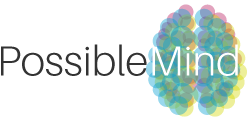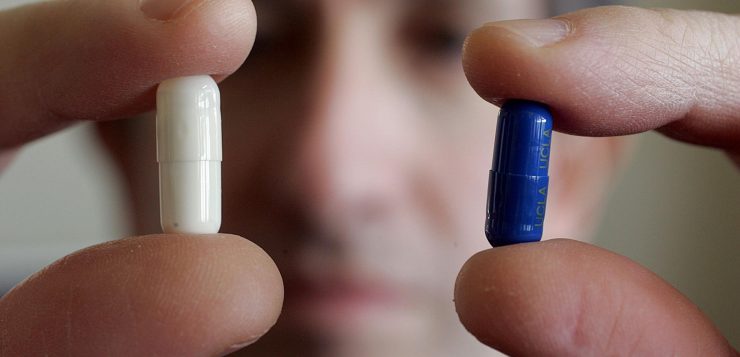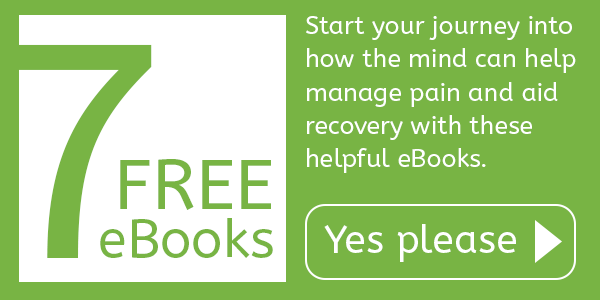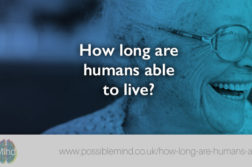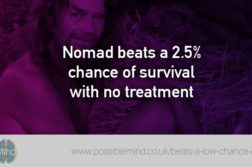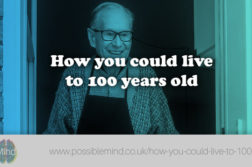The latest research in biochemistry reveals that your brain can actually self-medicate.
Illness is best cured with drugs. That assumption has prevailed since pharmaceuticals became widely available. But in recent years there has been a growing interest in alternative medicines, many of which employ mental or spiritual powers to heal the body. Now research into the biochemistry of placebos is showing that these remedies are not as wacky as they sound and that we are, indeed, capable of curing ourselves.
In Suggestible You: The Curious Science of Your Brain’s Ability to Deceive, Transform, and Heal, Erik Vance applies the latest science to an exotic smorgasbord of alternative therapies, including acupuncture, hypnosis, and even witchcraft—many of which he tests on himself. (Suggestible You was published by National Geographic.)
Talking from his home in Mexico City, Vance, who trained as a biologist, explains why his childhood experience of Christian Science piqued his interest in the mind’s power over health, why placebos are particularly effective in treating Parkinson’s disease, and why he asked a witch doctor in Mexico to put a curse on him.
You were brought up in the Christian Science faith, which claims to be able to treat illness with prayer. Is there any proof that faith healing actually works?
Wow, that’s tough! I was brought up in Christian Science, which, at its heart, believes that the world, including our bodies, is a reflection of our minds. So, if you change your mind, you can change your body.
Growing up in Christian Science I saw a lot of healings, which piqued and sustained my interest in this subject. I saw people who claimed to be healed of cancer, or a guy who cut off his toe and the toe grew back. But my hope for this book is not to prove or disprove these things I saw as a child.
Do placebos and the power of the mind work? What I’ve found is yes, but not with everything. There are rules and conditions in which healing can be incredibly effective. Parkinson’s, chronic pain, irritable bowel syndrome, depression, anxiety, certain types of asthma, and autoimmune deficiencies are all very placebo-responsive. But cancer is not.
Christian Science, homeopathy, or other unproven alternative medicines may make someone feel better, but when it comes to curing a life-threatening tumor, that isn’t an appropriate place to be using these methods.
Is today’s interest in faith and spiritual healing part of a troubling new flight from science, like the anti-vaccination movement? Does that concern you?
I understand the fear of this technology and the fear of doctors. I didn’t go to a doctor until I was 18 years old. When you don’t understand [modern medicine]or are brought up not to believe in it, it is scary. But there are times when unproven medicine and faith-based healing is appropriate. And there are times when it is not. For me it doesn’t take away from the power of the mind to know that it’s not effective against mumps.
My kids have their shots, I have shots, and I’m so grateful for that, but you also can’t deny that there’s a lot of fear of these things. Telling someone they’re stupid doesn’t help change their perspective. You have to meet them where they are. I am a scientist, I’ve read the data, I understand how vaccines work and have full faith in them. Yet, when I watched my son get a vaccine shot, I also felt a lot of fear. We can’t help it. These things are visceral.
Placebos have been particularly effective in the treatment of Parkinson’s disease. How do you explain that?
Parkinson’s is the perfect disease to talk about placebos. It is a chronic deficiency of dopamine, which is one of those brain chemicals that does a lot of jobs in our bodies. One of [dopamine’s] important roles is in reward processing: how we think about good things we might get in the future.
Expectation drives placebos. And dopamine is a chemical that’s very responsive to our expectations. Parkinson’s happens to be a deficiency in the very chemical that’s very important in placebo effects and rewards.
If you look at Alzheimer’s, which does not have a high placebo response, you start to see that there are rules at play when it comes to placebos. It’s not your brain magically doing all these crazy things. There are certain chemicals we have access to and others we don’t.
If placebos are effective, why is there such a taboo against them?…
